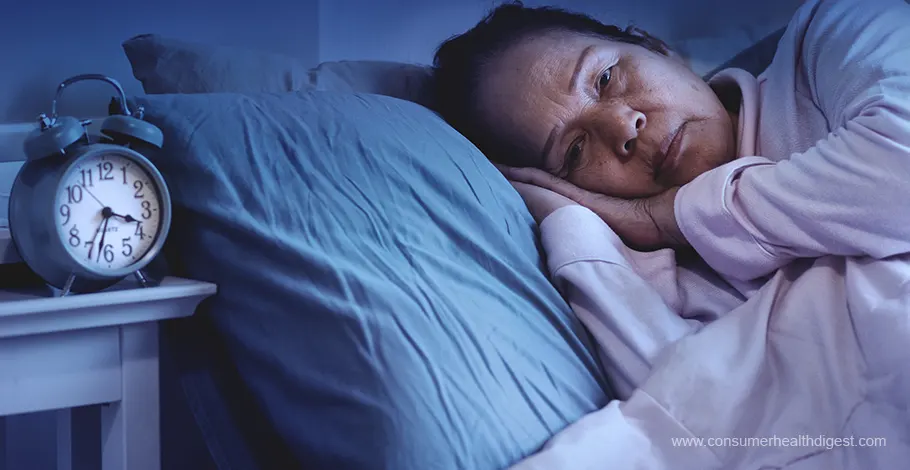We need quality sleep to maintain our general health and well-being. It enables our bodies and minds to rejuvenate, mend, and get ready for the next day.

Getting enough sleep, however, can be a constant struggle for those with Alzheimer's disease, which can have a negative influence on their quality of life and ability to function daily. Caregivers must comprehend and tackle these sleep-related concerns to provide the finest care and assistance for our aging loved ones. [1]
Understanding Sleep Problems in Alzheimer's
A variety of sleep disorders are common in people with Alzheimer's disease, which can interfere with everyday activities and general well-being. Excessive daytime sleepiness is one of the most prevalent problems, when people may experience drowsiness or regularly fall asleep during the day. This may result in less participation, less effort, and even a risk to their safety if they nod off in dangerous circumstances. [2]
However, insomnia—the inability to get or stay asleep—is also common among Alzheimer's patients. They may experience disturbed and low-quality sleep as a result, which could make them feel drowsy and agitated during the day. Memory loss, disorientation, and mood swings are just a few of the symptoms of Alzheimer's that might worsen from not getting enough sleep. [3]
A further concerning sleep issue associated with Alzheimer's is a behavior known as “sundowning,” in which people experience increased agitation, restlessness, or confusion in the evenings. This can be upsetting for caregivers as well as difficult for them to settle down and receive the rest they require.
There are several possible causes of these sleep issues. Sleep patterns may be disturbed as a result of Alzheimer's disease's disruption of the brain's ability to regulate the sleep-wake cycle. Underlying medical disorders, such as restless leg syndrome or sleep apnea may also cause sleep disruptions. Moreover, adverse effects from several medications used to treat Alzheimer's symptoms may prevent you from sleeping.
Promoting Better Sleep for Alzheimer's Patients
Even though Alzheimer's patients frequently have trouble sleeping, there are several tactics caregivers can use to help their loved ones sleep better. It's important to establish a reliable routine. Establish regular wake-up and sleep periods, and promote activities during the day and leisure throughout the night. Better sleep at night can be achieved by doing this, which can help balance the body's internal clock. [4]
Establishing a sleep-friendly atmosphere has other advantages. In the bedroom, keep the temperature and lighting comfortable and try to keep outside distractions to a minimum. Making sure the environment is peaceful and soothing can make people with Alzheimer's feel more at ease and more ready to sleep. A tranquil atmosphere can be produced with little additions like lavender smells, relaxing music, or blackout curtains.
During the day, promoting physical activity and exposure to sunlight can aid in regulating the body's internal clock and enhancing the quality of sleep at night. Frequent physical activity, such as brisk walks or stretching exercises, might make people feel physically exhausted and more sleep-ready at night. Furthermore, exposure to natural light while outdoors helps support the body's circadian rhythms.
It might also be worthwhile to investigate non-pharmacological treatments like light therapy or (under medical supervision) melatonin supplementation. Bright light exposure at particular times of the day is used in light therapy to assist people's circadian rhythms become more regulated.
In certain situations, melatonin supplements may also be beneficial because Alzheimer's disease can impair the body's natural synthesis of this hormone that regulates sleep.
It's crucial to remember that people with Alzheimer's disease might have quite different sleep needs and habits, so it could take some trial and error to determine which combination of techniques would work best for your loved one. [5]
Caring for the Caregiver
Because caring for a person with Alzheimer's can be emotionally and physically taxing, it's critical that caregivers put their health first, which includes obtaining adequate restful sleep. Your physical and emotional health may suffer as a result of the strain and responsibilities of providing care, and sleep deprivation may make these problems worse. [6]
Seeking assistance from friends, family, or respite care services can provide caregivers the time they require to recover and rejuvenate. Never be afraid to ask for assistance when you need it. Taking care of yourself and avoiding caregiver burnout will help you continue to provide your loved one with the best care possible. [7]
Good sleep practices can also help caregivers get the rest they require. These include keeping a regular sleep schedule, avoiding coffee and screen time before bed, and developing a calming bedtime routine. Furthermore, stress-relieving pursuits like exercise, meditation, or hobbies can enhance general well-being and sleep quality.
When to Consider Sleep Medications
Non-pharmacological methods might not always be sufficient to treat Alzheimer's patients' sleep issues. Although they should be used carefully and under a doctor's supervision, sleep aids are a possibility. Particularly in older persons with dementia, these drugs may increase disorientation, dizziness, or falls, among other possible hazards.
If sleep aids are recommended, it is critical to carefully follow the doctor's directions and keep an eye out for any negative side effects. It's also critical to investigate non-pharmacological solutions concurrently since medicine ought to be viewed as a stopgap measure rather than a permanent answer. Maintaining regular contact with the medical staff can help guarantee that the drugs are being taken safely and successfully. [8]
Conclusion
Alzheimer's patients frequently experience sleep problems, which can be difficult to manage. However, with time, understanding, and appropriate techniques, caregivers can support their loved ones in getting the sleep they require. Recall that giving your loved one the greatest care possible requires asking for help and attending to your own needs.
You can deal with sleep disruptions and make sure your loved one with Alzheimer's gets the rest and care they need by collaborating closely with healthcare experts, trying different strategies, and being adaptable when needs change. You may significantly improve the lives of persons impacted by this challenging illness if you have compassion, tenacity, and a dedication to enhancing the quality of life.
8 Sources
We review published medical research in respected scientific journals to arrive at our conclusions about a product or health topic. This ensures the highest standard of scientific accuracy.
[1] Contributors to Wikimedia projects. "Alzheimer's disease - Wikipedia." 17 Apr. 2024, en.wikipedia.org/w/index.php?title=Alzheimer%27s_disease&oldid=1219469146.[2] Gaur A, Kaliappan A, Balan Y, Sakthivadivel V, Medala K, Umesh M. Sleep and Alzheimer: The Link. Maedica (Bucur). 2022 Mar;17(1):177-185. doi: 10.26574/maedica.2022.17.1.177. PMID: 35733758; PMCID: PMC9168575.
[3] Brzecka A, Leszek J, Ashraf GM, Ejma M, Ávila-Rodriguez MF, Yarla NS, Tarasov VV, Chubarev VN, Samsonova AN, Barreto GE, Aliev G. Sleep Disorders Associated With Alzheimer's Disease: A Perspective. Front Neurosci. 2018 May 31;12:330. doi: 10.3389/fnins.2018.00330. PMID: 29904334; PMCID: PMC5990625.
[4] "6 Tips for Managing Sleep Problems in Alzheimer's." National Institute on Aging, 18 Apr. 2024, www.nia.nih.gov/health/sleep/6-tips-managing-sleep-problems-alzheimers.
[5] "Alzheimer's: Managing sleep problems." Mayo Clinic, 3 Dec. 2021, www.mayoclinic.org/healthy-lifestyle/caregivers/in-depth/alzheimers/art-20047832.
[6] Gao C, Chapagain NY, Scullin MK. Sleep Duration and Sleep Quality in Caregivers of Patients With Dementia: A Systematic Review and Meta-analysis. JAMA Netw Open. 2019 Aug 2;2(8):e199891. doi: 10.1001/jamanetworkopen.2019.9891. PMID: 31441938; PMCID: PMC6714015.
[7] Song MJ, Kim JH. Family Caregivers of People with Dementia Have Poor Sleep Quality: A Nationwide Population-Based Study. Int J Environ Res Public Health. 2021 Dec 11;18(24):13079. doi: 10.3390/ijerph182413079. PMID: 34948685; PMCID: PMC8702002.
[8] Javed B, Javed A, Kow CS, Hasan SS. Pharmacological and non-pharmacological treatment options for sleep disturbances in Alzheimer's disease. Expert Rev Neurother. 2023 Jun;23(6):501-514. doi: 10.1080/14737175.2023.2214316. Epub 2023 Jun 2. PMID: 37267149.







 This article changed my life!
This article changed my life! This article was informative.
This article was informative. I have a medical question.
I have a medical question.
 This article contains incorrect information.
This article contains incorrect information. This article doesn’t have the information I’m looking for.
This article doesn’t have the information I’m looking for.